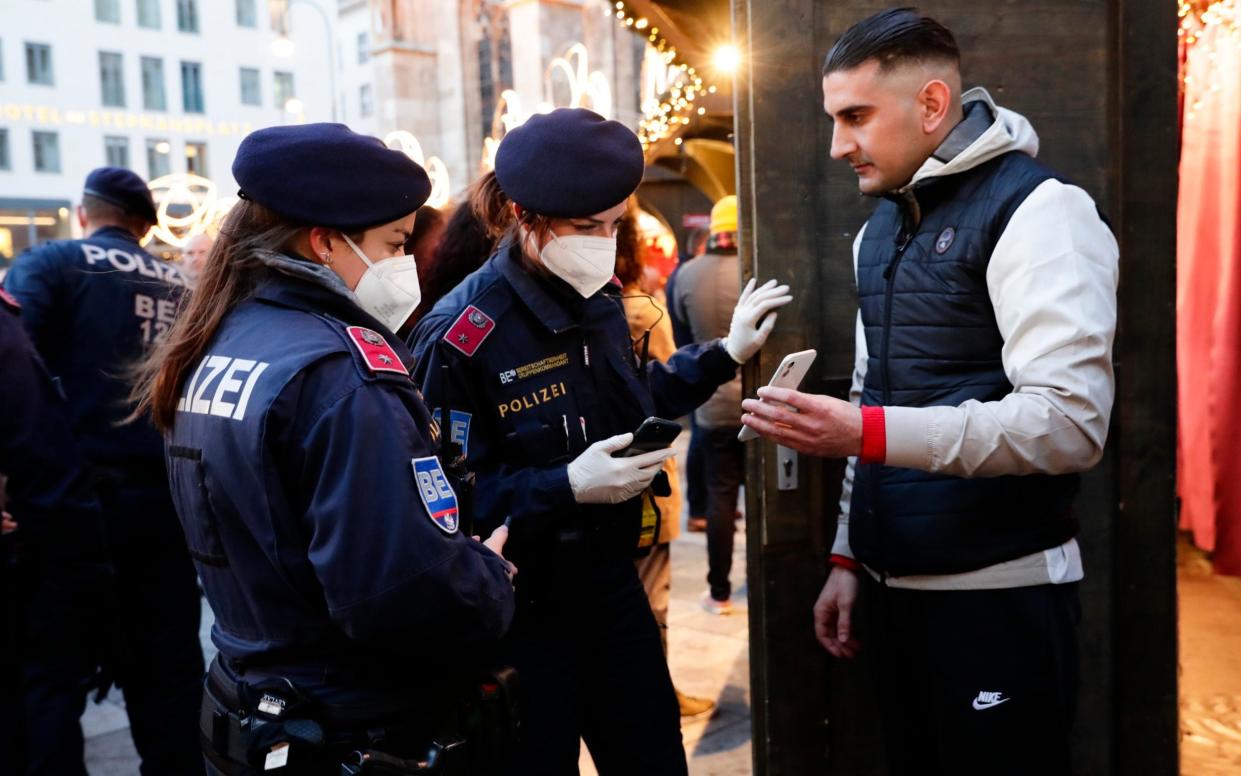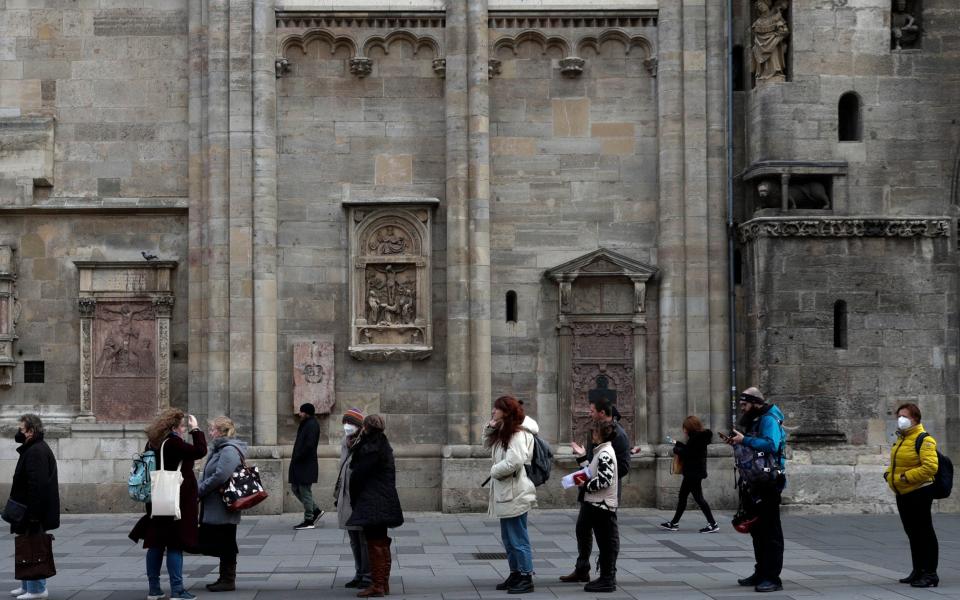Vienna braces for violence as Austria becomes first European country to make Covid jabs mandatory

- Oops!Something went wrong.Please try again later.
Austria has become the first country in Europe to make coronavirus vaccinations compulsory under new laws announced on Friday.
It prompted fears that a 10,000-strong march in Vienna on Saturday could descend into violence as anger builds against rules forcing people to get the jab.
"As of today, Austria is a dictatorship," said Herbert Kickl, the far-Right FPO leader, accusing the government of crossing a "dark red line" with the plan to force citizens to have the injection from Feb 1.
On Friday night, two people were hurt in Rotterdam after Dutch police fired warning shots at protesters as riots erupted over government plans to impose lockdown rules on unvaccinated people.
Police in Vienna were on high alert on Friday with 1,300 officers on standby, while intelligence services warned that anti-vaccine activists planned to invade hospitals in protest against the measures.
Alexander Schallenberg, the Austrian chancellor, also announced that the entire country would go into lockdown on Monday. Only the unvaccinated are currently confined to their homes.
Mr Schallenberg blamed the unvaccinated for forcing their fellow citizens back into lockdown.
"We are demanding a lot from the vaccinated people in this country, because the unvaccinated people have not shown solidarity," he said.
Pamela Rendi-Wagner, leader of the biggest opposition party, the Social Democrats (SPO), said: "The fourth lockdown could have been prevented. The government has not taken the experts' warnings seriously for too long."
10,000 expected in Vienna as anger rises
The protest in Vienna, which will bring together FPO supporters, trade unions and anti-vaxxers, was originally called to protest against the lockdown for the unvaccinated, but it is now expected to focus on compulsory vaccination.
Thousands of people massed in Graz, Austria's second largest city to protest against restrictions on the unvaccinated earlier this week. Saturday's rally in Vienna is expected to be much larger.
The unvaccinated have been under lockdown in Austria since Monday, but there is an exemption for authorised political protest. Austrian intelligence warned protesters would target hospitals in Salzburg and Upper Austria.
The two states told Mr Schallenberg they would enter full lockdown next week whether or not the federal government did, heaping pressure on the chancellor to impose more draconian measures.
Mr Schallenberg appeared to have pushed through the compulsory vaccination measure in response after he was forced to accept a lockdown he didn't want at talks with regional leaders.
Austria is following a path only so far taken by a handful of Asian and Pacific countries, including Indonesia, Tajikistan, Turkmenistan and Micronesia. In Indonesia the move was largely ineffective, because vaccine supplies were not sufficient to give everyone the jab.
Austria recorded 15,809 new cases of the virus on Friday and now has a seven-day incidence of 1,034 per 100,000 inhabitants - more than three times that of the UK.

Vaccination uptake has been slower than in many of Austria's neighbours.
Only 63.8 per cent of Austrians have been fully jabbed - compared with 67.5 per cent in the UK.
Covid-19 infections have fallen in most parts of the UK, though levels remain high, new figures suggest.
About one in 65 people in England, roughly 824,900 people, had Covid-19 in the week to Nov 13, down from one in 60 the previous week, according to the latest estimates from the Office for National Statistics.
Europe's Covid cases hit an all-time high, with 310,000 infections recorded on Wednesday - higher than the previous one-day record of 290,000 registered around this time last year.
The Austrian government says pregnant women and those who are unable to take the vaccine will be exempt.
In Linz there was opposition to the idea of mandatory vaccination.
"Compulsory vaccination makes sense in the health sector or among teachers, but not in general. That is an intervention in freedom," said Magdalena Dijkhuizen, 35, a project manager.
Markus Scheutmer, 21, a shop manager, said "There are human rights and everyone should decide for themselves if they want to be vaccinated."
Tourism to the country, a major skiing destination, is also banned until Dec 13 at the earliest.
Meanwhile, across the border in Germany, the Bavarian regional government announced it would impose local lockdowns in the worst affected towns.
Nightclubs and bars are to close across the state and all Christmas markets have been cancelled for the second year running. Restaurants are allowed to open until 10pm and are only allowed to serve the vaccinated.
Italy warned it would tighten measures next week and it was "inevitable" the unvaccinated would be hit hardest.

